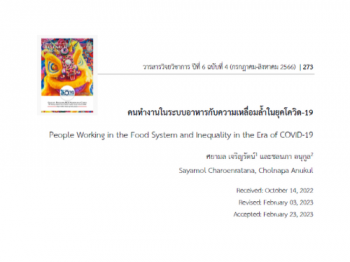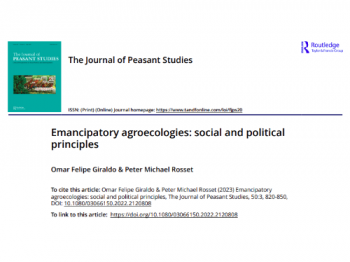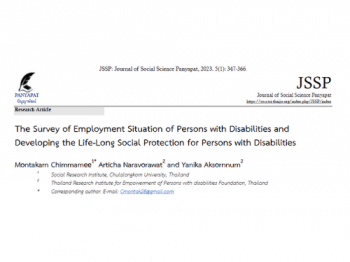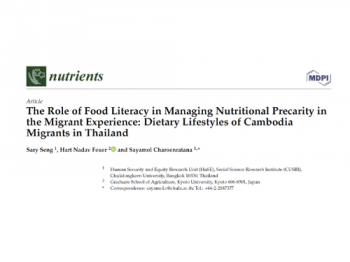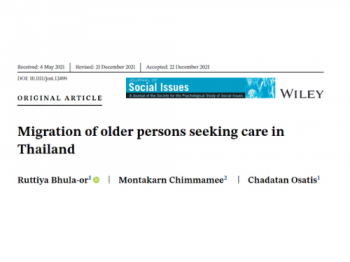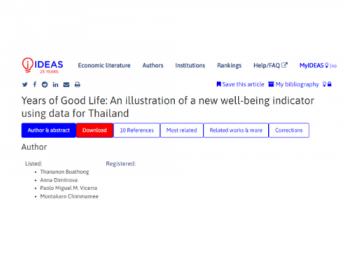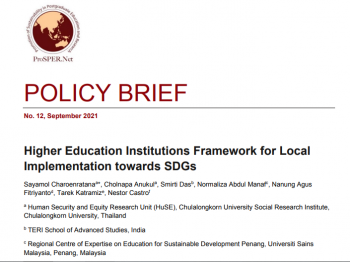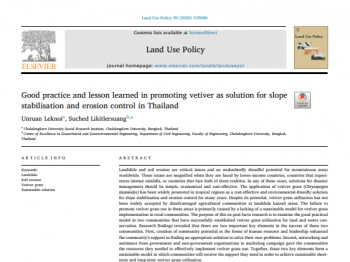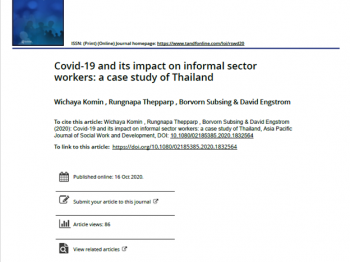People Working in the Food System and Inequality in the Era of COVID-19
Author : Sayamol Charoenratana and Cholnapa Anukul Abstract The purposes of this research article were 1) to know the working situations and conditions of workers in the food system during the lockdown; and 2) to study the impact in dimension of COVID- 19 inequality on urban food system workers and how to cope with it. It […]



